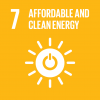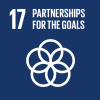Zero Carbon Buildings for All
General
| Name of initiative | Zero Carbon Buildings for All |
|---|---|
| LPAA initiative | No |
| NAZCA Initiative | No |
| Website address | wrirosscities.org/ZeroCarbonBuildings |
| Related initiatives | |
| Starting year | 2019 |
| End year | |
| Secretariat | World Resource Institute (WRI)
10 G St NE #800 Washington, DC 20002 clay.nesler@wri.com |
| Organisational structure | The Zero Carbon Buildings Accelerator has a rigorous reporting requirement through UNEP, the implementing organization, which include twice annual steering committee meetings and annual reporting of key project deliverables and outcomes. |
| Geographical coverage | Global |
| Name of lead organisation | WRI |
| Type of lead organisation | Other intergovernmental organization |
| Location/Nationality of lead organisation | United States of America |
Description
| Description | Zero Carbon Buildings for All – embodies a strong coalition of national and local actors aligning on enabling policies, roadmaps and NDC commitments that will drive the decarbonization of the global building stock, in high- and low-income countries alike, by mid-century. The initiative also includes strong representation from the private sector and financial institutions, which will encourage these government commitments as clear and essential market signals for upgrading supply chains and mobilizing finance. This initiative will dramatically enhance ambition and action on buildings-related emissions and consists of two intertwined and mutually supportive components that will be developed in tandem. |
|---|---|
| Objectives | Zero Carbon Buildings for All targets two major gaps in the development of mainstream markets for net zero carbon buildings – enabling policy frameworks and associated financing – and, in so doing, not only leads to dramatic carbon emissions reductions, but delivers a healthier, more productive environment to billions of people. |
| Activities | Component 1 — Drive National Ambition via Enabling Policies for Zero Carbon Buildings.
Public commitments by regionally influential national governments to attain Paris-compliant (zero carbon) new buildings by 2030 and existing buildings by 2050, reflected in 2020 climate policies such as NDCs. Component 2 — Drive Action Through $1Trillion+ in Zero Carbon Buildings Financing by 2030. Commitments by leaders in industry and finance to participate in and advise country-by-country policy road mapping processes, and to quickly and decisively align investment and market activity with outcomes. |
| One or two success stories achieved |
Monitoring and Impacts
Sustainable Development Impact:






| Function of initiative | Technical dialogue, Implementation |
|---|---|
| Activity of initiative | Knowledge production and innovation, Knowledge dissemination and exchange, Technical operational implementation (ex-post) |
| Indicators | |
| Goals | Signatories implement national and local policies to make new buildings 100% zero carbon by 2030 and existing buildings by 2050. As part of the announcement, multilateral development banks and private financial institutions commit to provide technical support and to align their financing for buildings with the Paris Agreement – with a goal of mobilizing $1 trillion in “Paris Compliant” buildings investments in developing countries by 2030. |
| Comments on indicators and goals | 20 countries participate in the commitment by 2025.
20 cities participate in the commitment by 2025. 10 financial institutions are prepared to finance implementation by 2025. |
| How will goals be achieved | |
| Have you changed or strenghtened your goals | |
| Progress towards the goals | The global launch of the Zero Carbon Building Acclerator project was June 22, 2021. The National launches of the project in Colombia and Turkey were held earlier in May and June which included over 100 stakeholders. Nine working groups have been established and are meeting regularly in Colombia, the first country to launch their project. |
| How are you tracking progress of your initiative | |
| Available reporting |
Participants
| Participants | Number | Names |
|---|---|---|
| Members | 23 | |
| Companies | 4 | Burohappold (United K.),Gensler (USA),Rockwool (Denmark),Saint-Gobain /France) |
| Business organisations | 7 | Global Alliance For Buildings And Construction (France), Pacific Northwest National Laboratory (USA), Program For Energy Efficiency In Buildings (Germany), Urban Land Institute (USA), World Economic Forum (Switzerland), World Green Building Council (United K.), World Resources Institute (USA) |
| Research and educational organisations | 0 | |
| Non-governmental organisations | 0 | |
| National states | 0 | |
| Governmental actors | 6 | Brazil, Colombia, Kenya, Tukey, United Arab Emirates, United K. |
| Regional / state / county actors | 0 | |
| City / municipal actors | 0 | |
| Intergovernmental organisations | 0 | |
| Financial Institutions | 6 | African Development Bank (Ivory Coast), European Bank For Reconstruction And Development (United K.), European Investment Bank (Luxembourg), International Finance Corporation (USA), Investment Fund For Developing Countries (Denmark), World Bank Group (USA). |
| Faith based organisations | 0 | |
| Other members | 0 | |
| Supporting partners | 0 | |
| Number of members in the years | | |
| Have only national states as participators | No | |
Theme
| Transport | Agriculture | Forestry | Business | Financial institutions | Buildings | Industry | Waste | Cities and subnational governments | Short Term Pollutants | International maritime transport | Energy Supply | Fluorinated gases | Energy efficiency | Renewable energy | Supply chain emission reductions | Adaptation | Other | Resilience | Innovation | Energy Access and Efficiency | Private Finance |
|---|---|---|---|---|---|---|---|---|---|---|---|---|---|---|---|---|---|---|---|---|---|
| No | No | No | No | Yes | Yes | No | No | No | No | No | No | No | Yes | No | No | No | No | No | No | No | Yes |
Last update: 4 October 2021 12:24:14
Not only have national states as participators
